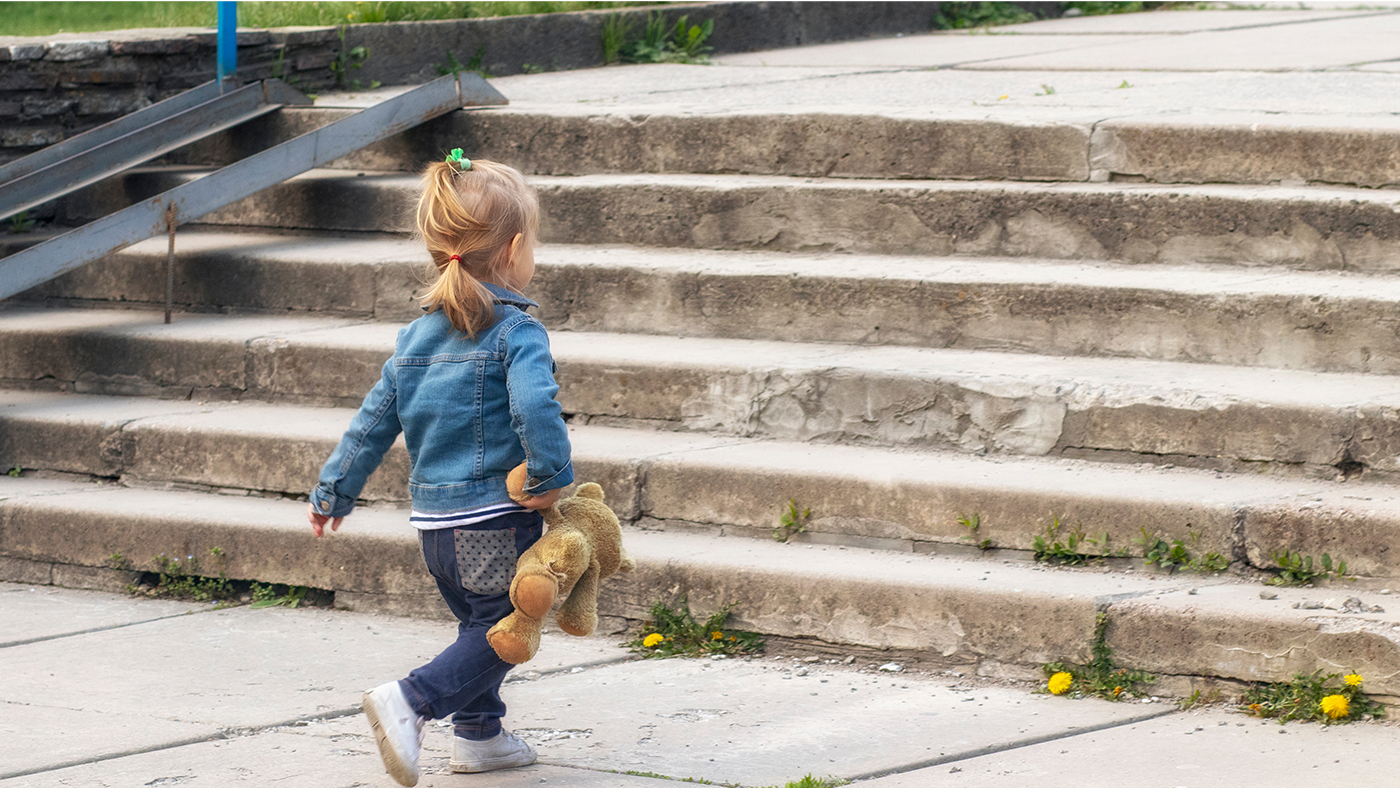Using the stairs – a simple way to get more activity into your day and great for your toddler’s development too!

We all know keeping active is important; but despite your watch telling you to move more, or a daily goal of 10,000 steps, the reality is that most parents don’t have time for sport, the gym or an exercise class every day. Which is where the stairs come in as a perfect way to fit in a bit of extra movement for your and your toddler.
As well as being vital for our bodies, physical activity can help us manage stress and sleep better. It's good to think that every minute counts and exercise in various forms and guises can be spread across the day. Physical activity is important for our physical and mental health, it can help us manage stress and sleep better.
Physical activity guidelines for adults suggest at least 150 minutes of moderate intensity activity or 75 minutes of vigorous intensity activity (which includes climbing stairs) each week – and some strength building activity – like carrying heavy bags or doing yoga at least two days a week.[1]
For your toddler, the recommendations are to reduce the amount of time they spend being still, and aim for at least 180 active minutes a day – this includes playing, dancing, walking and anytime they are moving really.[2]
For your toddler, moving has similar benefits as it does for you – like supporting sleep – but it also helps them build strong muscles and bones, and contributes to brain development and learning.[2]
We know it can be tempting, especially when you’re in a rush, to avoid the stairs and jump in the lift or go on an escalator instead – especially if your toddler is still mastering climbing the stairs, making the whole process feel a bit slow.
But if you can take the stairs, it is a brilliant way to support your toddler’s development, and if you count the stairs as you go, it might keep your toddler moving and help them learn about numbers too.
It might feel slow at first, but using the stairs as often as you can will build your toddler’s confidence and capability and get them in a habit that will last a lifetime, and is a really simple way to support their physical and mental health (and yours).
References:
[1] UK Government (2019). Physical activity guidelines: adults and older adults. https://www.gov.uk/government/publications/physical-activity-guidelines-adults-and-older-adults
[2] UK Government (2019). Physical activity guidelines: early years (under 5s). https://www.gov.uk/government/publications/physical-activity-guidelines-early-years-under-5s